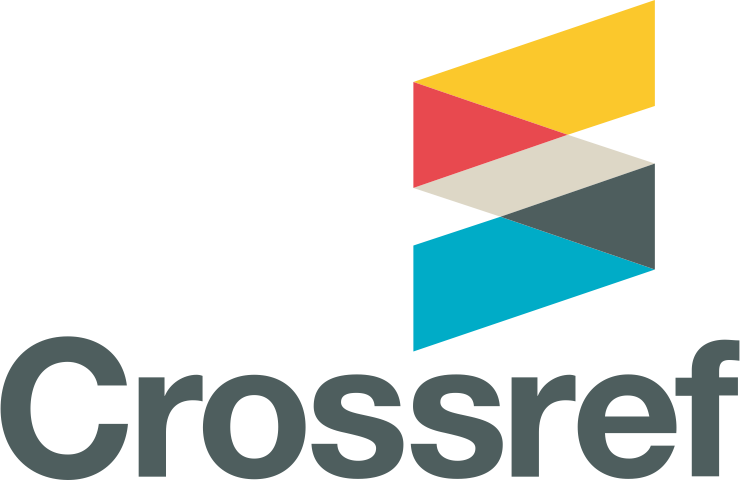Classification of Student Aspiration Using Naïve Bayes Classifier
DOI:
https://doi.org/10.33633/jais.v6i1.4459Abstract
Students aspiration are various demands from the student that packed in creative idea to propose changing process of a thing. Mostly, aspiration delivered in complaints and expectation. Aspiration is used for evaluating the laxity and early detection in university quality system for the better. This activity took place in Dian Nuswantoro University, and Student Representative Council (SRC) is the unit to manage the students aspiration. Aspiration is obtained through predetermined mechanism such as manual questionnaire distribution and or using google form. The provided questionnaire requires student to fill the content according to the provided aspiration categories. However, the problem is sometimes the student choose the wrong category according to the content. Therefore it is needed to create an application that can classified the students aspiration automatically. Document text classification become the best way to determine the category based on the content of the students aspiration. Naïve bayes classifier method is used because it is capable to produce high accuracy. With 1000 data training document of each category, "facilities and infrastructure" (facilities), "lecturers" (attitudes, teaching methods, material delivered), "staffing and the academic system"(attitudes, ways of working, providing information), and "suggestions and feedback". This experiment achieved 90.20% accuracy. It can be said that this method is worth to implement in this research.References
V. Dhanalakshmi and D. Bino, “Opinion mining from student feedback data using supervised learning algorithms,” in 2016 3rd MEC International Conference on Big Data and Smart City, ICBDSC 2016, 2016, pp. 1–5.
L. Khanna, S. N. Singh, and M. Alam, “Educational data mining and its role in determining factors affecting students academic performance: A systematic review,” 2017, doi: 10.1109/IICIP.2016.7975354.
F. F. Balahadia, M. C. G. Fernando, and I. C. Juanatas, “Teacher’s performance evaluation tool using opinion mining with sentiment analysis,” in Proceedings - 2016 IEEE Region 10 Symposium, TENSYMP 2016, 2016, pp. 95–98, doi: 10.1109/TENCONSpring.2016.7519384.
S. Dey Sarkar, S. Goswami, A. Agarwal, and J. Aktar, “A Novel Feature Selection Technique for Text Classification Using Naïve Bayes,” Int. Sch. Res. Not., vol. 2014, pp. 1–10, 2014, doi: 10.1155/2014/717092.
F. C. Permana, Y. Rosmansyah, and A. S. Abdullah, “Naive Bayes as opinion classifier to evaluate students satisfaction based on student sentiment in Twitter Social Media,” J. Phys. Conf. Ser., vol. 893, no. 1, 2017, doi: 10.1088/1742-6596/893/1/012051.
F. F. Balahadia and B. E. V. Comendador, “Adoption of Opinion Mining in the Faculty Performance Evaluation System by the Students Using Naïve Bayes Algorithm,” Int. J. Comput. Theory Eng., vol. 8, no. 3, pp. 255–259, 2016, doi: 10.7763/ijcte.2016.v8.1054.
M. L. Barrón Estrada, R. Zatarain Cabada, R. Oramas Bustillos, and M. Graff, “Opinion mining and emotion recognition applied to learning environments,” Expert Syst. Appl., vol. 150, 2020, doi: 10.1016/j.eswa.2020.113265.
S. F. Rodiyansyah and E. Winarko, “Klasifikasi Posting Twitter Kemacetan Lalu Lintas Kota Bandung Menggunakan Naive Bayesian Classification,” IJCCS, vol. 6, no. 1, pp. 91–100, 2012, doi: 10.1163/ej.9789004182127.i-302.6.
D. S. Pamungkas, N. A. Setiyanto, and E. Dolphina, “Analisis Sentiment Pada Sosial Media Twitter Menggunakan Naive Bayes Classifier Terhadap,” Techno.COM, vol. 14, no. 4, pp. 299–314, 2015.
A. Hamzah, “SENTIMENT ANALYSIS UNTUK MEMANFAATKAN SARAN KUESIONER DALAM EVALUASI PEMBELAJARAN DENGAN MENGGUNAKAN NAIVE BAYES CLASSIFIER (NBC),” in Prosiding Seminar Nasional Aplikasi Sains & Teknologi (SNAST), 2014, no. November, pp. 211–216.
B. Shruti, And, and G. Vishal, “Text News Classification System using Naïve Bayes Classifier,” Int. J. Eng. Sci., vol. 3, no. December, pp. 209–213, 2014, [Online]. Available: http://www.ijoes.vidyapublications.com.
Z. E. Rasjid and R. Setiawan, “Performance Comparison and Optimization of Text Document Classification using k-NN and Naïve Bayes Classification Techniques,” Procedia Comput. Sci., vol. 116, pp. 107–112, 2017, doi: 10.1016/j.procs.2017.10.017.
R. Vijay, B. Vangara, K. Thirupathur, and S. P. Vangara, “Opinion Mining Classification using Naive Bayes Algorithm,” Int. J. Innov. Technol. Explor. Eng., vol. 9, no. 5, pp. 495–498, 2020, doi: 10.35940/ijitee.e2402.039520.
W. B. Zulfikar, M. Irfan, C. N. Alam, and M. Indra, “The comparation of text mining with Naive Bayes classifier, nearest neighbor, and decision tree to detect Indonesian swear words on Twitter,” 2017, doi: 10.1109/CITSM.2017.8089231.
P. Liu, H. han Zhao, J. yu Teng, Y. yan Yang, Y. feng Liu, and Z. wei Zhu, “Parallel naive Bayes algorithm for large-scale Chinese text classification based on spark,” J. Cent. South Univ., vol. 26, no. 1, pp. 1–12, 2019, doi: 10.1007/s11771-019-3978-x.
K. M. A. Hasan, M. S. Sabuj, and Z. Afrin, “Opinion mining using Naïve Bayes,” in 2015 IEEE International WIE Conference on Electrical and Computer Engineering, WIECON-ECE 2015, 2016, pp. 511–514, doi: 10.1109/WIECON-ECE.2015.7443981.
V. M., J. Vala, and P. Balani, “A Survey on Sentiment Analysis Algorithms for Opinion Mining,” Int. J. Comput. Appl., vol. 133, no. 9, pp. 7–11, 2016, doi: 10.5120/ijca2016907977.
Downloads
Published
Issue
Section
License
- Authors retain copyright and grant the journal right of first publication with the work simultaneously licensed under a Creative Commons Attribution License that allows others to share the work with an acknowledgment of the work's authorship and initial publication in this journal.
- Authors are able to enter into separate, additional contractual arrangements for the non-exclusive distribution of the journal's published version of the work (e.g., post it to an institutional repository or publish it in a book), with an acknowledgment of its initial publication in this journal.
- Authors are permitted and encouraged to post their work online (e.g., in institutional repositories or on their website) prior to and during the submission process, as it can lead to productive exchanges, as well as earlier and greater citation of published work (See The Effect of Open Access).









